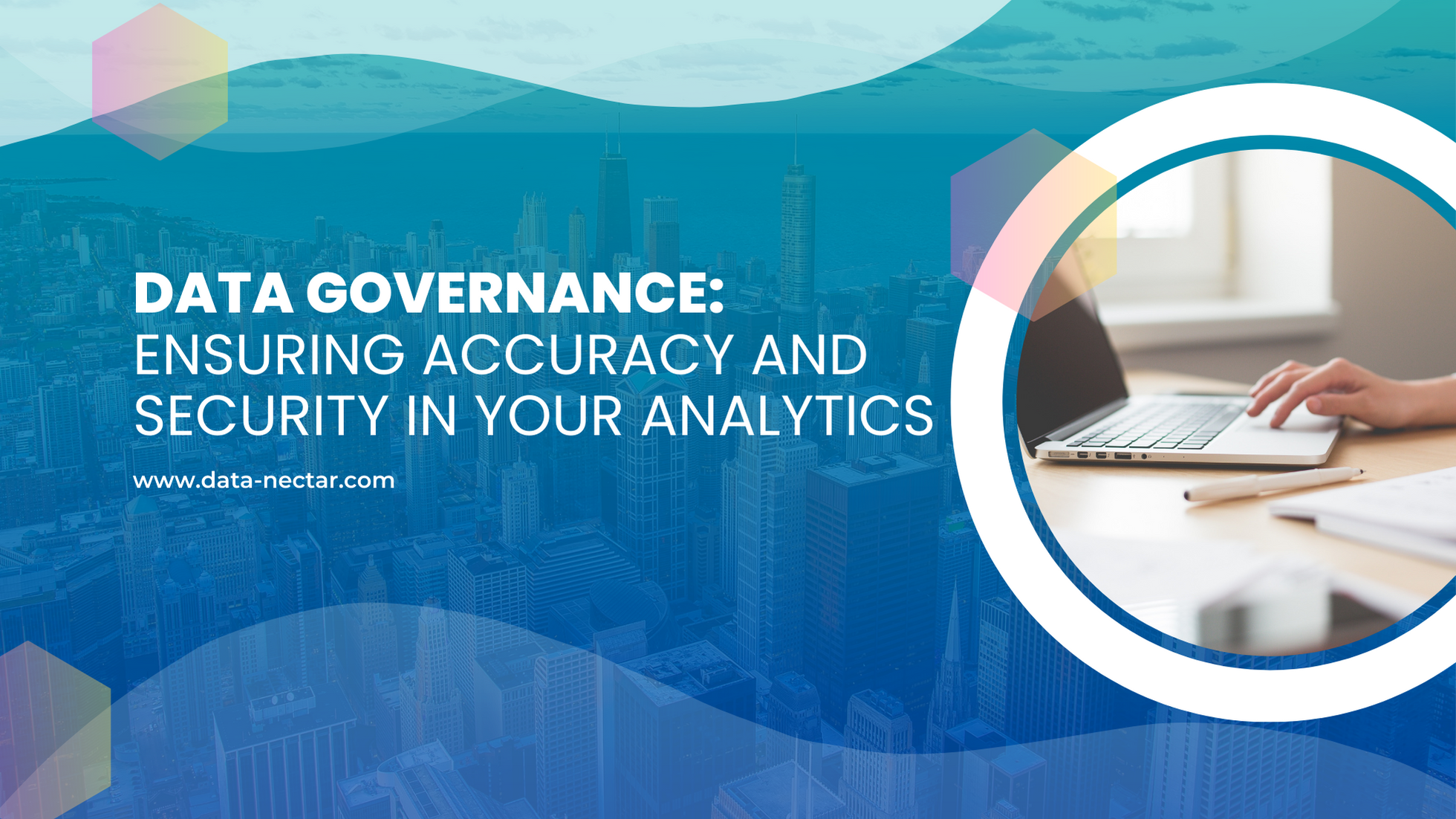Tech
Data Governance: Ensuring Accuracy and Security in Your Analytics

In today’s digital age, data has become an invaluable asset for businesses of all sizes, including those that provide data analytics services and Data Science consulting services. Data can provide insights that help businesses make better decisions, improve their processes, and create new opportunities.
However, with the rise of big data comes the challenge of managing and protecting it. Data governance is a process that can help businesses ensure the accuracy and security of their analytics.
In this article, we will explore what data governance is, why it is important, and how it can benefit your business, particularly if you offer data analytics services or Data Science consulting services.
What is Data Governance?
Data governance is a set of policies, procedures, and standards that organizations use to manage their data assets. The goal of data governance is to ensure that data is accurate, complete, secure, and accessible to the right people at the right time.
Data governance involves establishing roles and responsibilities for managing data, defining data quality standards, and implementing controls to ensure compliance with data privacy regulations. For businesses that provide data analytics services or Data Science consulting services, data governance is particularly important as it can help ensure the accuracy and reliability of the insights they provide to their clients.
Why is Data Governance Important?
Data governance is important for several reasons. First, it helps businesses ensure the accuracy of their analytics, which is crucial for businesses that offer data analytics services or Data Science consulting services. Data that is inaccurate or incomplete can lead to flawed insights and bad decision-making, which can damage the reputation of a business and harm its clients.
Second, data governance helps businesses maintain the security of their data, which is essential for protecting the confidentiality and privacy of sensitive data. Third, data governance helps businesses comply with data privacy regulations, which is particularly important for businesses that operate in highly regulated industries or offer data analytics services or Data Science consulting services.
Benefits of Data Governance
Implementing data governance can provide several benefits for businesses that offer data analytics services or Data Science consulting services. Some of the key benefits include:
Improved data quality: By defining data quality standards and implementing controls to ensure compliance with these standards, businesses can improve the accuracy and completeness of their data, which is essential for providing reliable insights to their clients.
Increased efficiency: By establishing roles and responsibilities for managing data, businesses can reduce the risk of duplication, inconsistency, and other data-related issues, which can improve the efficiency of their operations.
Enhanced decision-making: By ensuring the accuracy of their analytics, businesses can make better-informed decisions that can lead to improved performance and profitability, which is particularly important for businesses that offer data analytics services or Data Science consulting services.
Better compliance: By implementing data governance, businesses can ensure compliance with data privacy regulations and avoid the risk of fines and other penalties, which is essential for businesses that operate in highly regulated industries or offer data analytics services or Data Science consulting services.
How to Implement Data Governance Implementing data governance involves several key steps. These steps include:
Define your data governance framework: Start by defining your data governance framework, including policies, procedures, and standards for managing data.
Identify key stakeholders: Identify the key stakeholders who will be responsible for implementing and maintaining your data governance framework, including those who offer data analytics services or Data Science consulting services.
Assess your current data environment: Conduct a thorough assessment of your current data environment, including the quality, completeness, and security of your data. This will help you identify any gaps or areas of improvement that need to be addressed.
Define data quality standards: Define clear data quality standards that align with your business objectives and ensure that your data is accurate, complete, consistent, and timely.
Establish roles and responsibilities: Define roles and responsibilities for managing data and ensure that everyone in your organization understands their responsibilities.
Implement controls: Implement controls to ensure compliance with data privacy regulations and to protect the confidentiality and integrity of your data.
Monitor and measure: Continuously monitor and measure the effectiveness of your data governance framework and make improvements as needed.
FAQs about Data Governance
Q: What are some common challenges of implementing data governance?
A: Some common challenges of implementing data governance include lack of executive buy-in, lack of resources, and resistance to change.
Q: Who should be responsible for data governance in an organization?
A: Data governance should be a collaborative effort that involves stakeholders from across the organization, including those who offer data analytics services or Data Science consulting services. However, it is important to designate a data governance team or individual who is responsible for implementing and maintaining the data governance framework.
Q: How can data governance help businesses comply with data privacy regulations?
A: Data governance can help businesses comply with data privacy regulations by defining policies and procedures for managing data, implementing controls to protect the confidentiality and integrity of data, and monitoring and measuring compliance with data privacy regulations.
Conclusion
Data governance is an essential process for businesses of all sizes, particularly those that offer data analytics services or Data Science consulting services. By implementing data governance, businesses can ensure the accuracy and security of their data, improve their efficiency, enhance their decision-making, and comply with data privacy regulations.
To implement data governance, businesses should define their data governance framework, identify key stakeholders, assess their current data environment, define data quality standards, establish roles and responsibilities, implement controls, and monitor and measure their data governance framework.






























